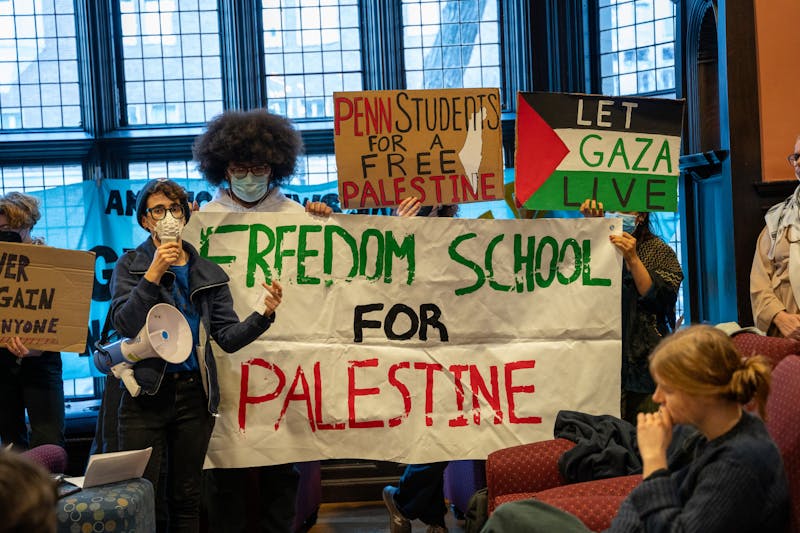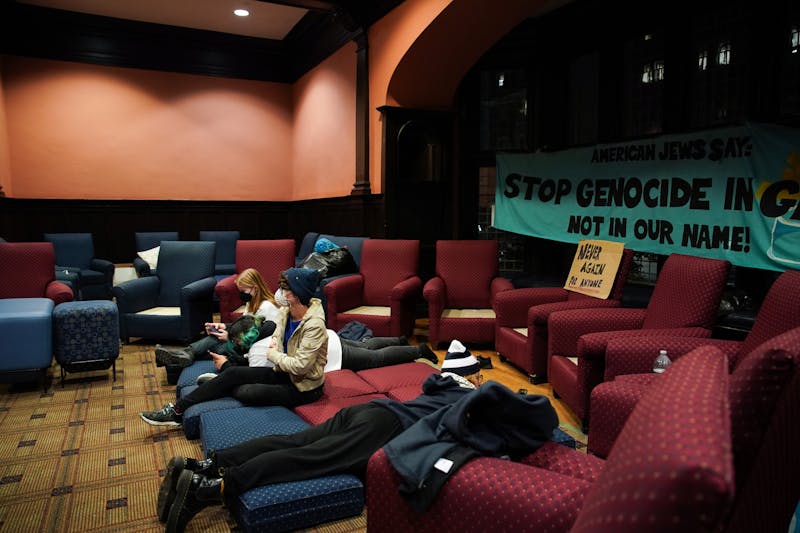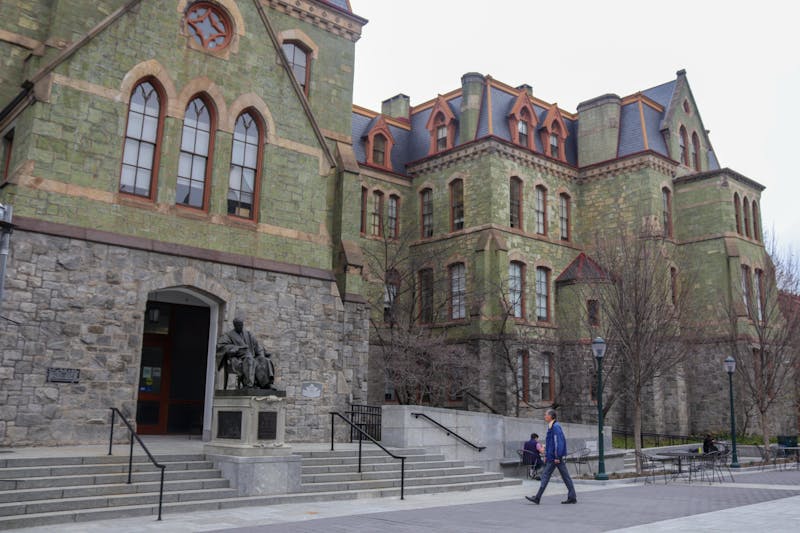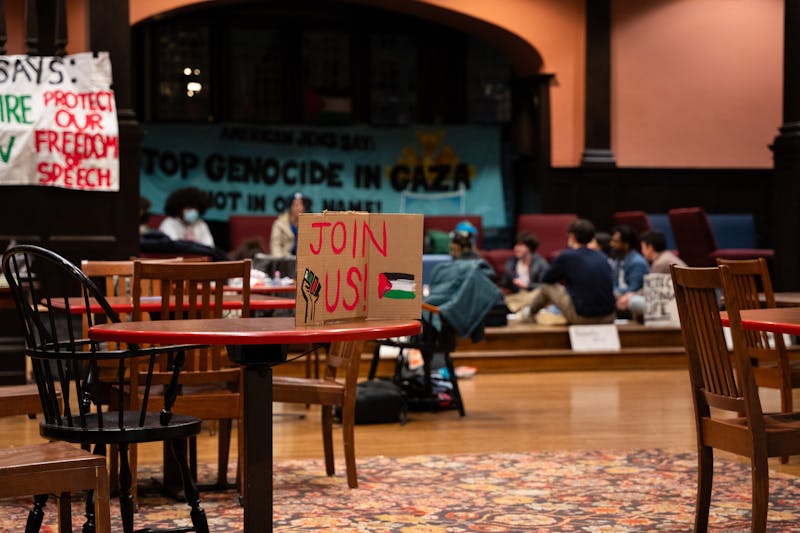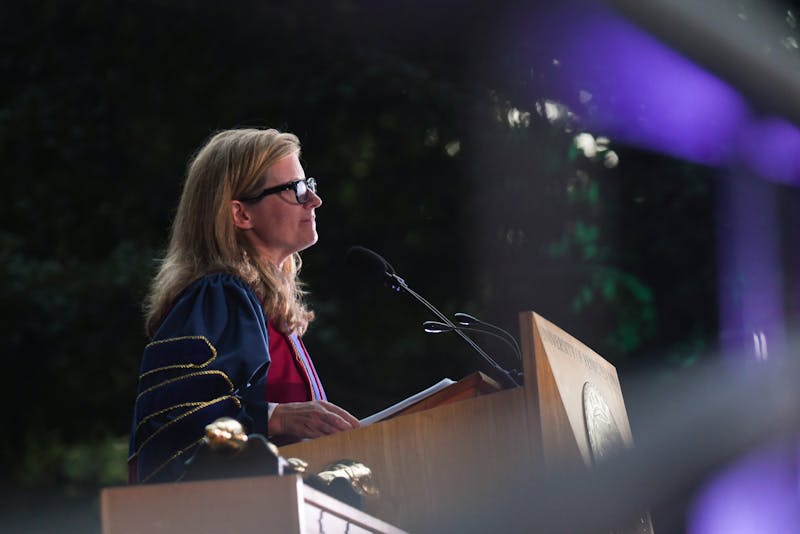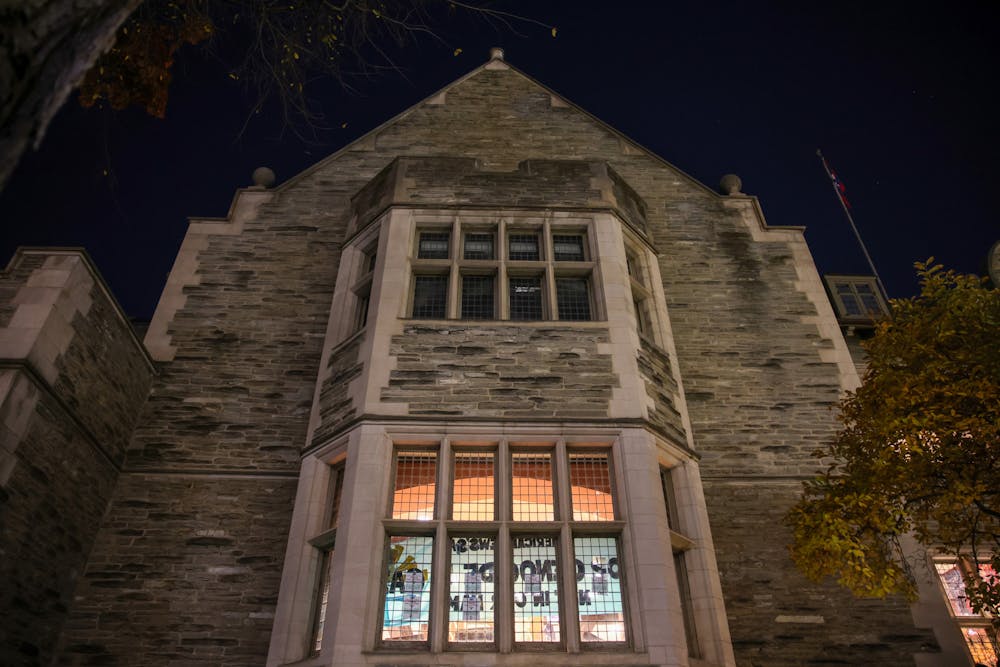
The Freedom School for Palestine's sit-in in Houston Hall, visible from a window, on Nov. 15.
Credit: Abhiram JuvvadiThe Freedom School for Palestine's sit-in in Houston Hall is continuing as the fall semester wraps up.
Freedom School for Palestine — a self-identified collection of Penn students, faculty, staff, and alumni — began their demonstration on Nov. 14. The group has outlined three key demands for top University representatives: calling for a ceasefire in Gaza now, protection of freedom of speech at the University, and instituting critical thought on Palestine across campus.
The pro-Palestinian sit-in has been ongoing since Nov. 14, though the activists did not remain in Houston Hall over Thanksgiving break, according to Ph.D. student in the Comparative Literature and Literary Theory program and Freedom School Organizer Hilah Kohen.
“It was implicit but clear to us that we would face arrest if we continued this protected action," Kohen said. "Our aim here is education, not any kind of unreasonable disruption. We came to an agreement with administrators as part of an active conversation about furthering urgent demands.”
Kohen described the sit-in’s committee as not only purpose-driven but also community focused.
“[We are] a family that is committed to mutual care, to education, to culture, to residential community. And, first and foremost, to crying out against genocide of Palestinians,” they said.
A student granted anonymity out of fear of personal safety involved in the Freedom School told The Daily Pennsylvanian that their programming — including film screenings, workshops, and lectures — was started as a way to disseminate information and encourage discourse when the University had stopped students, staff, and faculty from doing so through official channels.
The student encouraged students, staff, and faculty with ideas for workshops to coordinate with the Freedom School. Programming topics have included cybersecurity, Latin American solidarity with Palestine, and Palestinian music.
The Freedom School has also held multiple vigils over the course of the sit-in period “to mourn, to remember, and to try to honor the dead by reading,” the student said.
After their first day of programming on Nov. 14, five Penn community members involved with the Freedom School for Palestine remained in Houston Hall overnight after refusing to leave the building following their day-long teach-in.
They have read over 700 names of those impacted during these observances.
“More than 16,000 people were killed in the genocide," the student said. "The fact that we’re not even keeping up by reading these names is just a manifestation of how disastrous, how catastrophic this is."
Houston Hall operations and protocol have also been altered by the ongoing sit-in and its related programming.
In an email obtained by the DP, Houston Hall employees were informed about a change in building access protocol for the remainder of the semester. According to the email, everyone who enters Houston Hall must show their PennCards to greeters at the desk once they enter the building.
“The policy for the rest of the fall semester is that only individuals with a PennCard are allowed in the building after 7 p.m.,” the email read. “If someone does not have their PennCard or does not show one, please let them know that they are in violation of the policy.”
Kohen described the University’s “words and deeds” in their communication and response to the sit-in as mismatched.
“It’s been made clear to us that even the Provost’s Office recognizes how reasonable [our] demands are as a response [to the violent reality],” they said.
According to Kohen, witnessing the ongoing conflict in the region in conjunction with the lack of “concrete commitments” from the University has given the Freedom School reason to continue.
“[We’re] not just going to wait around and see, because we have each other," Kohen said. "Our first priority is to be there for one another and do everything we can in this beautiful, peaceful, educational space to cry out against, and to break apart the normalization of genocide.”
The Daily Pennsylvanian is an independent, student-run newspaper. Please consider making a donation to support the coverage that shapes the University. Your generosity ensures a future of strong journalism at Penn.
Donate







